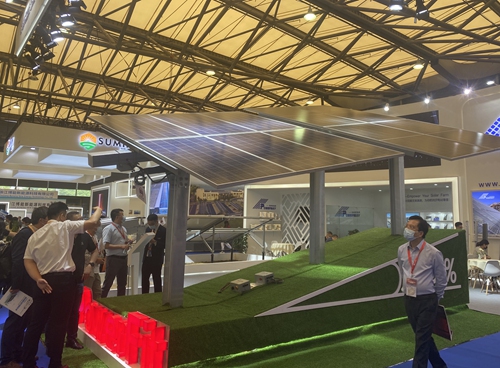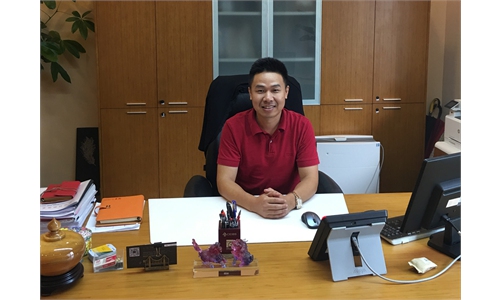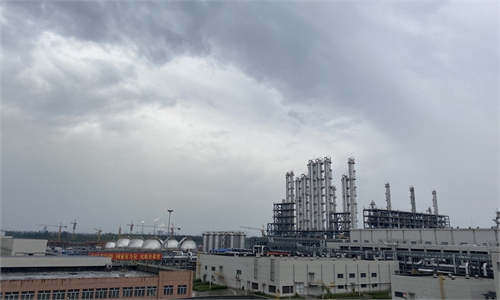Chinese solar firms confident despite unfair, unfriendly trade policies

Photo: Xie Jun/GT
China's solar companies projected confidence in their global businesses at a major industry fair in Shanghai, even as they face a barrage of challenges, including unfair trade policies and malicious slander pushed by Western politicians and competitors.
At the SNEC International Photovoltaic Power Generation and Smart Energy Exhibition in Shanghai, companies along the solar energy industry chain said that they will continue to invest in overseas markets, despite unfair trade barriers, "forced labor" accusations against businesses in Northwest China's Xinjiang Uygur Autonomous Region, rising raw material prices and currency fluctuations.
"We are eyeing markets in Southeast Asia, the Middle East and North Africa, because they have a great number of large solar projects, such as the 1.8-gigawatt project in the United Arab Emirates, as well as a sound financial condition," Li Zhengyu, a senior account manager at Yingli Solar, said on Thursday.
Though demonstrating confidence, the solar sector still faces challenges.
"Currency fluctuations in tandem with surging raw material prices are putting customers at a cost disadvantage. The coronavirus pandemic also pushed up shipping costs, as many containers were stuck abroad," a staff member of a Shanxi-based PV cell producer told the Global Times.
In addition to the market uncertainties, geopolitical factors have also become a factor in the PV sector, since some Western forces have been slandering businesses in China's Xinjiang region - a major polysilicon production base in China and also a significant one for the world's PV industry.
Pan Cunxiang, secretary general of the Nonferrous Metal Industry Association in Xinjiang, told a press conference on Thursday that US solar energy associations and institutes have colluded to besiege China's PV industry by using the same tactic when attacking Xinjiang cotton - "forced labor."
"As we all know, the production of polysilicon is a technology- and capital-intensive industry, not a labor-intensive one. Polysilicon producers in China's Xinjiang region are among the top in the world with high levels of automation, digitization and 5G technologies widely adopted in their production lines," Pan said.
"So-called forced labor accusations are nonsense. Recently, a forum on polysilicon was held in Xinjiang with many reporters going into a factory to see the highly automated and digital production," Pan said. A Global Times reporter joined the tour in May.
Xinjiang's PV companies are all lawfully registered, and they operate in accordance with the laws and fulfill their social responsibilities and all their employees are hired legally and have signed work contracts, Pan said,
He added that the wages paid by PV companies in Xinjiang are higher than many other industries, and their employees are satisfied with the working conditions.




